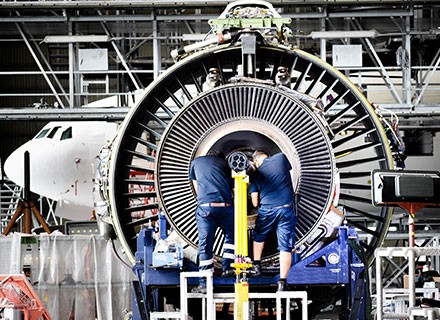As the Biden administration urges the aviation industry to cut emissions, Honeywell International Inc. said that it would introduce technology that might enhance the supply of ethanol-based, lower-carbon aviation fuel.
With the help of Honeywell’s technology, the US can reduce the cost of producing sustainable aviation fuel (SAF). Given that other forms of power cannot easily substitute fuel, the aviation industry is regarded as one of the most challenging to decarbonise. Oil refiners have been striving to produce more SAF to reduce emissions.
Kevin O’Neil, senior business leader for renewable fuels at Honeywell UOP, said, “As demand for SAF has increased, we’ve been looking at different ways to make more SAF economically that people can adopt and adapt at large scale and produce to displace sizable portions of the jet and diesel pools.”
Depending on the type of ethanol feedstock utilised, Honeywell claims that its method can reduce greenhouse gas emissions from jet fuel made from petroleum by 80% throughout its entire lifecycle. In the US, corn is primarily used to produce ethanol.
According to Honeywell’s news announcement, SAF facilities using Honeywell’s technology can be modularised offshore, resulting in reduced costs and quicker, less labour-intensive installation.
Companies can create new SAF capacity using this method more than a year faster than they could with conventional construction.
The report states that the new technology would also make it possible for fuel manufacturers and oil refiners to turn existing or new facilities into SAF production facilities.
The Biden administration started working on increasing output in September 2021 to have enough SAF by 2050 “to fulfill 100% of aviation fuel demand, currently anticipated to be roughly 35 billion gallons per year.”
Demand for SAF feedstocks will also probably increase due to the recent Inflation Reduction Act, a climate bill with incentives for low-carbon fuels.
Many manufacturers have opted to create sustainable aviation fuel using lower carbon-intensity feedstocks, like grease and animal fat.

